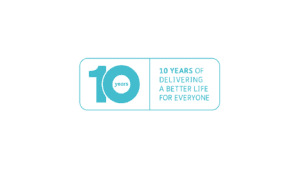As a previous care home manager, our Head of Customer Experience, Dan, knows first-hand what impact electronic care planning has on care and the teams who provide it. We asked Dan to give us his thoughts on something we get asked a lot – is electronic really that much quicker than paper?
Are there many busier environments than care?
We all know care is a very busy world to work in.
Visitors, GP’s, hairdressers, chiropodists, maintenance operatives, CQC can be around at any time of the day. Then we think about all of the support we provide throughout the day, how things rarely go according to plan and the notes that we need to record to show what care we’ve been providing.
Often teams are so busy that all of their notes are ‘remembered’ until the end of the shift – a full days notes for a range of different people with varying degrees of support. We see at Nourish that the average provider completes 600 records per day – 600. That is an awful lot of information to be remembered and it’s no wonder that people can quickly forget to write something down.
How many times have you had the following situations in your service:
- A staff member says they filled something in, but they’re unsure where
- A family member asks about their relative and you haven’t been in for a few days, so have to dig through their paperwork or find somebody that was.
- You put a Support Plan folder into archived storage only to be asked about it a few days/weeks/months/years down the line.
- You go to read the days records but you can’t read the handwriting.
- And my favourite: You need a pen, but they have all up and disappeared ..
Electronic platforms help us to tackle all of that.
So, when can electronic be quicker?
Daily notes
With platforms like Nourish that can be used on mobile devices, care records can be recorded at the point of care. Recording as something happens means that what we record is more accurate, live and always available to the rest of the team. This not only helps to make sure everyone is informed throughout the day, but it ensures that important tasks or targets are not missed.
It also means that records take less time. With dropdown options, checkboxes, pre-determined fields and free text, carers can record a lot more detail in a lot less time.
Also, for staff members where written records can be difficult to complete, they can take advantage of the speech-to-text option. This allows you to speak into the device and have your notes typed out in text for you.
Interestingly, recent research from Standford University found that speech-to-text is three times as fast as texting, and even more so than writing. The study found the following average words per minute:
- Writing – 5-20 words p/minute
- Texting – 40 words p/minute
- Speech-to-text – 150 words p/minute
What previously might have been recorded as “All ok” or “joined in with…”, soon becomes a more natural in-depth report of conversations, enjoyment and participation; all in a lot less time than they could achieve on paper.
Automated assessments
Another way electronic care planning can save you time is in assessments. Scored assessments in particular are a great tool, but there is a lot of room for error when they become complicated, you have to complete calculations and you’re trying to do all of that at speed.
Electronically, these scored assessments can be created to automatically calculate for you. You simply have to put in the answers and the score will self-generate. Not only is that quicker for you, but it also reduces the chances of errors in your records.
One assessment that we find can be significantly faster to complete is the MUST (weight records). The self-calculating MUST assessment can work out the BMI, percentage weight loss and create a score using historical records, whilst pulling that information straight into a graph for you to see. Alone, that’s a saving of at least five minutes per assessment. Combine that with other assessments and those saved minutes soon start to add up.
The ability to personalise forms can also really cut down the time taken to complete. With paper, all options need to be present for the team to be able to fill in, whether they are relevant to the person or not. With the ability to remove non-applicable questions, we can speed up form completion by around 30%.
Audits, reviews & inspections
Without a doubt, the area where electronic recording really results in time being saved is during audits, reviews and inspections.
All of your information is recorded in one place and can be pulled at the touch of a button. Regardless of whether that’s information for what happened yesterday or three years ago, that information is easily recorded and quickly retrieved should you need it.
Ffion Roberts from Jewish Care noted herself in a recent webinar: “It’s only when you get your first complaint or investigation and you need to find historical information that you realise what would’ve taken me all day now takes me only ten minutes to locate. And it’s only taken as long as that because it was my first time”
Having all of your information accessible at all times, recorded accurately and stored in the correct location saves you invaluable time. We know from experience that care providers look back on their days of paper and can’t quite believe how much time they spent looking for information and preparing for inspections.
High-level management
Another time-saving aspect of electronic records is if you manage more than one care location, and need the visibility of information across services. Without even accounting for the time-saved not having to travel to each service, being able to group together key records across services (i.e. accident records for group analysis) means that you quickly and simply see the information you need to submit provider information returns and complete audits.
Head office and management can have instant access to the type of information they need to see, without any extra time or effort from other members of the team. Quicker access, but also more efficient and sustainable.
But, it’s really not all about speed
So, answering the question of whether electronic is really quicker than paper? It absolutely is.
However, as you’ve no doubt picked up by now, it’s also about a lot more than just speed of recording. It’s having all of your information in one place, ensuring your whole team has the information they need to provide the care they’re giving and allowing you to be prepared and ready for any audits or inspections.








